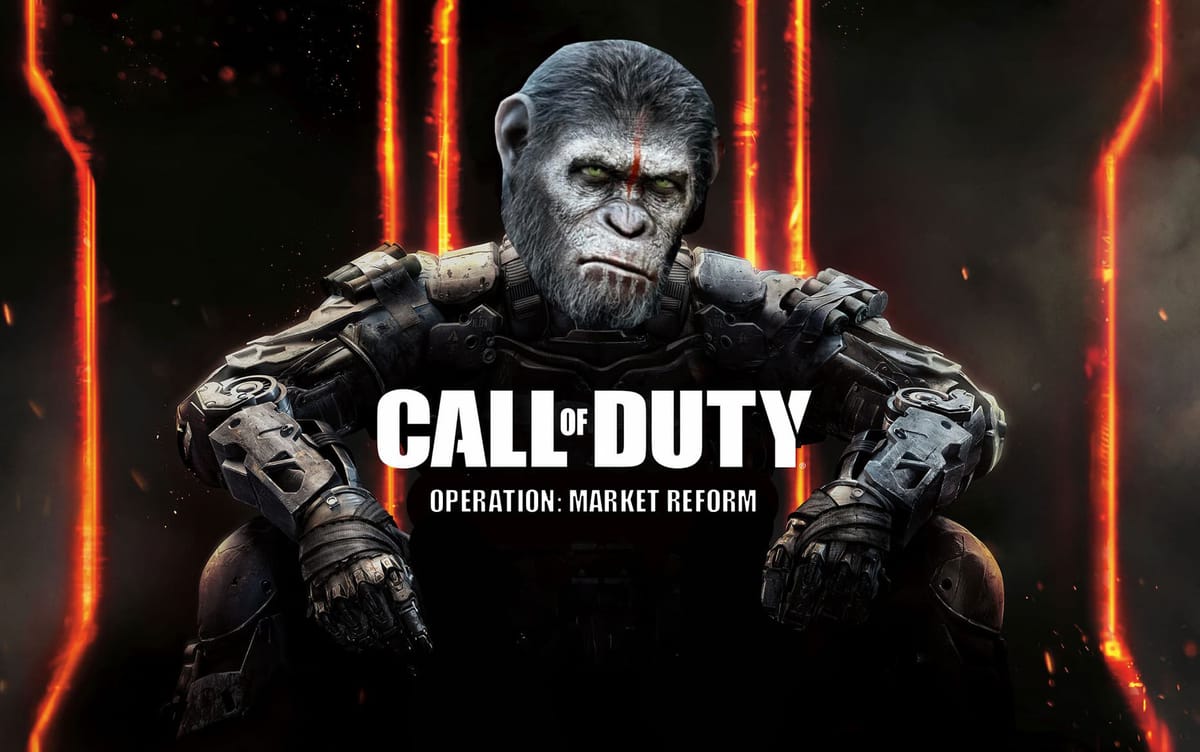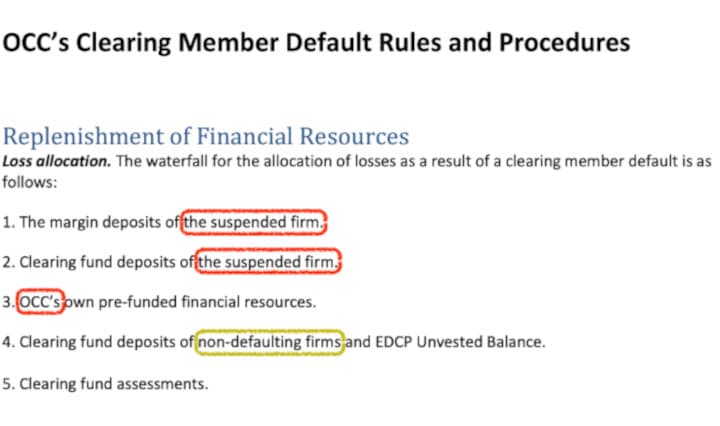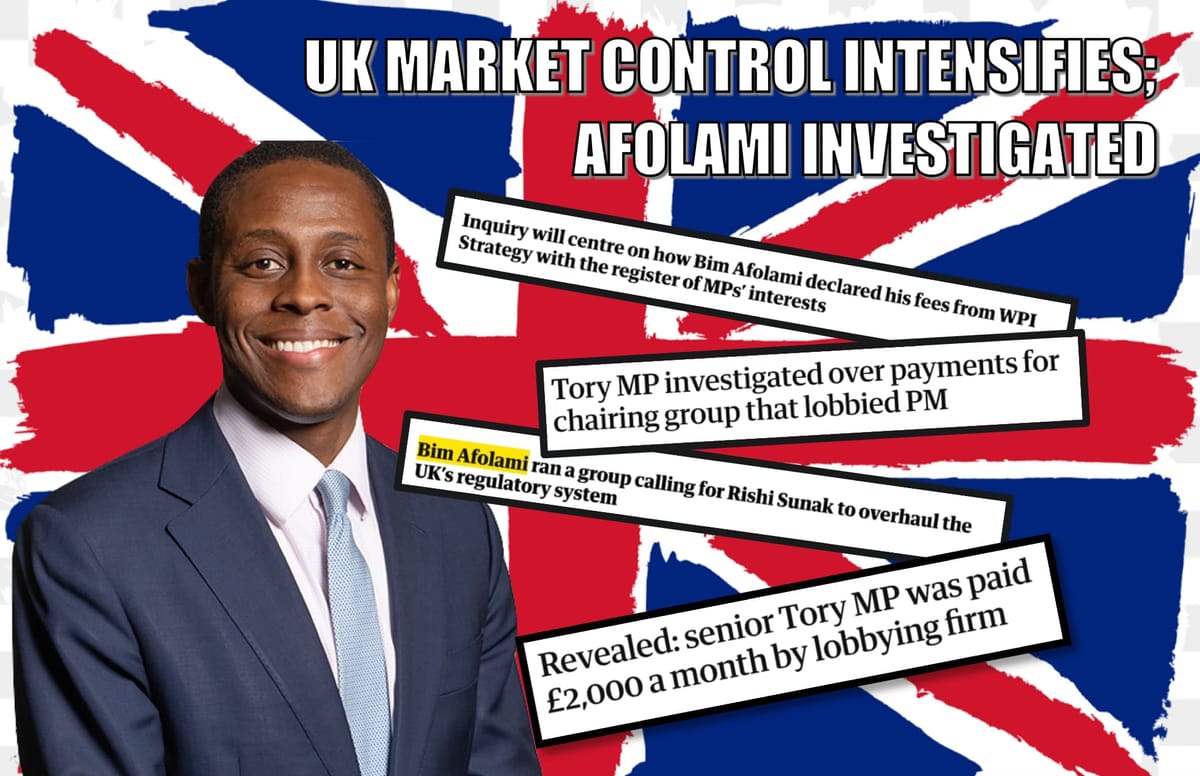Why we should expect a rate hike in June: A review of what Fed officials have said and what incoming data is saying.
Good morning Superstonk! Jellyfish back with you to review what folks from the Fed have been saying and to pair it with data to show that we are likely to see a rate hike in June.
Let's get to it!
First, this all 'starts' back with the last announcement 5/3.
Economic activity expanded at a modest pace in the first quarter. Job gains have been robust in recent months, and the unemployment rate has remained low. Inflation remains elevated.
The U.S. banking system is sound and resilient. Tighter credit conditions for households and businesses are likely to weigh on economic activity, hiring, and inflation. The extent of these effects remains uncertain. The Committee remains highly attentive to inflation risks.
The Committee seeks to achieve maximum employment and inflation at the rate of 2 percent over the longer run. In support of these goals, the Committee decided to raise the target range for the federal funds rate to 5 to 5-1/4 percent. The Committee will closely monitor incoming information and assess the implications for monetary policy. In determining the extent to which additional policy firming may be appropriate to return inflation to 2 percent over time, the Committee will take into account the cumulative tightening of monetary policy, the lags with which monetary policy affects economic activity and inflation, and economic and financial developments. In addition, the Committee will continue reducing its holdings of Treasury securities and agency debt and agency mortgage-backed securities, as described in its previously announced plans. The Committee is strongly committed to returning inflation to its 2 percent objective.
In assessing the appropriate stance of monetary policy, the Committee will continue to monitor the implications of incoming information for the economic outlook. The Committee would be prepared to adjust the stance of monetary policy as appropriate if risks emerge that could impede the attainment of the Committee's goals. The Committee's assessments will take into account a wide range of information, including readings on labor market conditions, inflation pressures and inflation expectations, and financial and international developments.
Voting for the monetary policy action were Jerome H. Powell, Chair; John C. Williams, Vice Chair; Michael S. Barr; Michelle W. Bowman; Lisa D. Cook; Austan D. Goolsbee; Patrick Harker; Philip N. Jefferson; Neel Kashkari; Lorie K. Logan; and Christopher J. Waller.
Since the announcement, Fed Governors have gone on to say:
5/8/23: Chicago Fed President Austan Goolsbee:

1:44:
"I am certainly getting vibes… that a credit crunch or credit squeeze is beginning’.
"I think you have to say recession is a possibility"
"That has to be on everyone's mind"
5:37
"The total hours worked by everyone in the economy, not just the number of jobs, and you have seen that the total hours worked has not been as robustly growing as the job numbers would suggest."
6:10
The job market and the credit conditions those are the two main things we want to be looking at besides of course the prices themselves.
5/9/2023: NY Fed President John C. Williams:

"The Federal Reserve is committed to bringing inflation down. As the Mandalorian would say, "Price stability."
- ""This is the way.""
"The FOMC is mandated by Congress to promote maximum employment and price stability. The goals of our dual mandate are intrinsically linked."
- "Specifically, price stability is essential for the economy to reach its full potential and to sustain maximum employment over the long term."
- "Last June, inflation spiked to a 40-year high of 7 percent, as measured by the personal consumption expenditures (PCE) price index. Since then, inflation has moderated to 4.2 percent, in large part due to a decline in energy prices. That's much better than 7 percent, but still more than double our longer-run goal of 2 percent."
- "But the most persistent area of inflation is in core services excluding housing, which has been running around 4-1/2 percent since last August . This is driven by a continued imbalance in overall supply and demand, and it will take the longest to bring down."
- "I expect inflation to decline to around 3-1/4 percent this year, before returning to our longer-run goal of 2 percent over the next two years."
- "As tighter monetary policy continues to take effect, I expect real GDP to grow modestly this year, with growth then picking up somewhat next year."
- "And I anticipate slow growth will continue to cool the labor market, with unemployment gradually rising to about 4 to 4-1/2 percent over the next year."

- "In my view, our policy stance is now restrictive, but whether it is sufficiently restrictive to bring inflation down remains uncertain."
- "In my view, the most recent CPI and employment reports have not provided consistent evidence that inflation is on a downward path, and I will continue to closely monitor the incoming data as I consider the appropriate stance of monetary policy going into our June meeting."
- "In response to the recent bank failures, it is tempting to engage in a wholesale revision of the bank regulatory framework. Before changing rules, we need to take a critical look at actual weaknesses, and acknowledge the strengths that should be preserved."
- "Accountability is critical for both the bank and for supervisors. Where regulators have failed in supervision, we must hold ourselves accountable."
- "Calls for radical reform of the bank regulatory framework—as opposed to targeted changes to address identified root causes of banking system stress—are incompatible with the fundamental strength of the banking system."
5/12/2023 Fed Governor Philip N. Jefferson:

"Current inflation is still high."
- "Personal consumption expenditures (PCE) inflation, the black line, stands at 4.2 percent, and core PCE inflation, the red line, stands at 4.6 percent for year-end March 2023."

"Overall, news on inflation so far this year has been mixed."
- "The good news is that food and energy prices both fell in March, and total PCE inflation slowed to 4.2 percent from 5 percent in February."
- "Since peaking last June, inflation has declined about 2.75 percentage points—with nearly all the step-down explained by falling energy prices and slowing food prices."
- "The bad news is that there has been little progress on core inflation."

- "Core goods inflation, the red line in the image above has come down since its peak of 7.6 percent in February 2022, but the most recent news has been discouraging."
- "Outside of used motor vehicle prices, which fell unexpectedly in March, disinflation in core goods prices is occurring at a slower pace than expected."
- "Supply and demand imbalances in the goods sector seem to be resolving less quickly than expected."
- "Core housing services inflation, the black line in the image above, surged over the past couple of years as demand in the housing sector underwent a major shift during the pandemic."
- "The latest monthly readings have started to slow, though that is not yet evident in the 12-month changes shown in the image above."
"The recent slowing was presaged by a flattening out of rents on new leases to new tenants since the middle of last year."
- "In contrast, core services excluding housing inflation, the blue dashed line in the image above, has not shown much sign of slowing."
5/16/2023 Cleveland Fed governor Loretta J Mester:

5/16/2023 Richmond Fed Governor Thomas Barkin:
“I do want to learn more about what’s happening with all these lagged effects. But I also want to reduce inflation,” “And if more increases are what’s necessary to do that I’m comfortable doing that.”
5/18/2023 Fed Governor Philip N. Jefferson:
I am guided by the dual mandate assigned to the Federal Reserve by the U.S. Congress: price stability and maximum employment.
On the one hand, inflation is too high, and we have not yet made sufficient progress on reducing it.
On the other hand, GDP has slowed considerably this year, and even though the effect has been muted in the labor market so far, demand clearly has begun to feel the effects of interest rates that are 5 percentage points higher than they were a little over a year ago.
History shows that monetary policy works with long and variable lags, and that a year is not a long enough period for demand to feel the full effect of higher interest rates.
5/22/23 St. Louis Fed’s James Bullard:
- backs two more hikes.
- Bullard would have central bank push interest rates up to 5.5%-5.75% range
5/24/2023 Christopher J Waller:
"Inflation Is Stubbornly High" "Almost no progress." "The news on core inflation was similar." "I do not support stopping rate hikes unless we get clear evidence that inflation is moving down towards our 2 percent objective."
What the Data is saying? Inflation is Re-accelerating!!!:
On rent (remember, rent prices account for the largest proportion of CPI and PCE), the median asking rent was $1,734, up by $4 from last month and down by $43 from the peak but still $348 (25.1%) higher than the same time in 2019 (pre-pandemic):

So much for rents flattening, right Jefferson?
Zillow data backs this up. Zillow's observable rent index (asking rents advertised by landlords)

https://www.zillow.com/research/april-2023-rent-report-32595/
Asking rents climbed by $12, or 0.6%, from March to April, according to the latest edition of the Zillow Observed Rent Index (ZORI). That brings the index to $2,018, for a cumulative 1.3% increase since its recent low point in January, at $1,991. The 0.6% monthly increase is slightly smaller than the typical April increase of 0.7%, averaged over data from 2016 to 2019, suggesting that today’s growth is still driven mainly by seasonal factors, and that overall leasing conditions are still somewhat cool for this time of year. Typical asking rents at the national level now stand at $2,018, which is 5.3% higher than one year ago, and 0.5% higher than the peak of $2,008 observed in September 2022. That annual growth rate is now down almost 12 percentage points from the peak growth rate of 16.9%, the record-high pace reached in February 2022.
- 'Typical rent' is the highest ever at $2018 per month
- April is the biggest month-to-month increase since August and still appears to be growing
- Annualized, April's rate of increase would be 7.4%
For the Fed governor's above 'looking to see the data', the biggest component of CPI and PCE inflation is still raging from inflation.
The core PCE price index (excludes food and energy and is the Fed's favorite inflation index and the one they base policy after) re-accelerated in April as well.
According to the Bureau of Economic Analysis, on a year-over-year basis, the core PCE price index jumped by 4.7%, same as in July 2022, and up from a 4.6% increase in March
Please note, the (shittly drawn) RED line below is the Fed's stated 2% goal for inflation:

https://fred.stlouisfed.org/series/PCEPILFE
For almost a year now it has been stuck around 5%! On a month-to-month basis it is not slowing down either:

https://fred.stlouisfed.org/series/PCEPILFE
Again, services are where nearly 2/3 of consumer spending goes and it is still growing, 8.4% on a year-to-year basis:

https://fred.stlouisfed.org/series/PCES#0
Again, jumping month-to-month:

Another view of it all from the NY Fed:

Okay, so it is pretty darn clear that inflation is not tamed and rates need to go higher. Does the labor market and broader economy (as measured vid GDP) data 'support'? (I use this term VERY loosely, more to show that these areas can take on the pain of additional rate hikes)
Yes...

Employment is still strong and wages are 'elevated' higher than Jefferson is comfortable with as indicated above (can't have raises above 2% now, can we?)...
On the GDP front, first-quarter GDP was revised up to 1.3% from 1.1%:

The revised GDP is another reason for Jefferson called out above to agree to a rate hike
I have to imagine it was powered by this RECORD spending by consumers!

It looks like a LOT of this spending has gone on credit cards for consumers:
When will inflation end?
In my opinion, it will not be unless and until the Fed get the Federal Funds rate at and ABOVE Core CPI and as we can see, they still have work to do:

Once the Fed can get this 'narrower ban' of goods and services in control, the rest of core PCE should follow.
TLDRS:
- Fed Governors say they will consider more rate hikes based on data
- Review of data shows the job is not done
- Expect a June rate hike
How does this relate to GameStop?
- The broader economy is seeing regional banks blow up at these rates, what sort of stress will higher rates cause in the banking system with those trying to maintain their short positions for another day?



